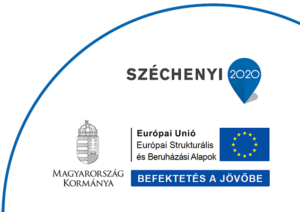Geological Activities
SARA performs state geological tasks to ensure Hungary’s energy security and the supply of mineral resources, and to assess geological risks.
The Geological Survey, an integral part of SARA, carries out geological, geophysical, and hydrogeological studies that support the fulfilment of the Authority’s specific tasks related to the management of mineral resources and mining.
It is of particular importance to prepare geological maps and deep geological models that meet the requirements of the 21st century, on the basis of which the geological composition and structure of the subsurface of Hungary can be precisely determined. This activity is essential for predicting the occurrence, quantity, quality and extractability of raw materials of strategic importance for the national economy (hydrocarbons, geothermal energy, ores, critical elements, construction raw materials) and for their sustainable management.
To develop a climate-friendly energy industry that guarantees a high level of security of supply, it is also essential to understand other possible uses of the subsurface (e.g. carbon dioxide and gas storage, innovative underground energy storage solutions) and the deep geological-structural conditions that determine their framework.
The geoscientific knowledge recorded in modern databases is also indispensable for the operation of many other areas, such as modern infrastructure (road and railway development), nuclear safety and security (disposal of radioactive waste), various environmental geological issues, as well as water management issues related to groundwater resources.
The vast amount of geological, geophysical and hydrogeological information is stored in modern digital databases. It is worth mentioning the GeoBank, which contains the data of nearly 270,000 shallow and deep boreholes in Hungary. The unique geological collection with more than 500,000 mineral, rock and fossil specimens, Hungary’s largest Geological and Geophysical Library with more than 300,000 items and the core sample collection with core material of about 8,100 deep boreholes drilled on the territory of the country also form outstanding parts of the data assets.
The expertise of predecessor institutions (Mining and Geological Survey of Hungary, Geological and Geophysical Institute of Hungary, Eötvös Loránd Geophysical Institute, Geological Institute of Hungary) dating back more than 150 years and the unique geoscientific data assets covering the entire Carpathian Basin, a solid foundation and decisive value in the course of geological activities..
Harnessing geothermal energy
The energy crisis caused by the war and the sanctions has shown that there is no energy source more valuable than the one available within the country’s borders. Therefore, the widest possible use of geothermal energy is essential to strengthen our country’s energy sovereignty.
In the autumn of 2022, the legislator fully delegated the licensing and supervisory powers over the extraction and use of geothermal energy to SARA. A key objective of the Authority is to create a simpler legal framework and procedures, free of unnecessary bureaucracy, and to ensure the faster and more professionally sound preparation of investments. The one-stop shop system that came into force on 1 March 2023 has enabled efficient and fast administration. Thanks to the new investments to be launched as a result, up to 1–1.5 billion cubic metres of natural gas per year could be substituted by 2030.
On the initiative of SARA, the Hungarian Geothermal Cluster, a cooperative group of geothermal stakeholders, was established in February 2023. The aim of the cluster members is to promote the harnessing of the exceptional geothermal potential of the Carpathian Basin by all possible means in the interest of Hungary’s energy sovereignty.

